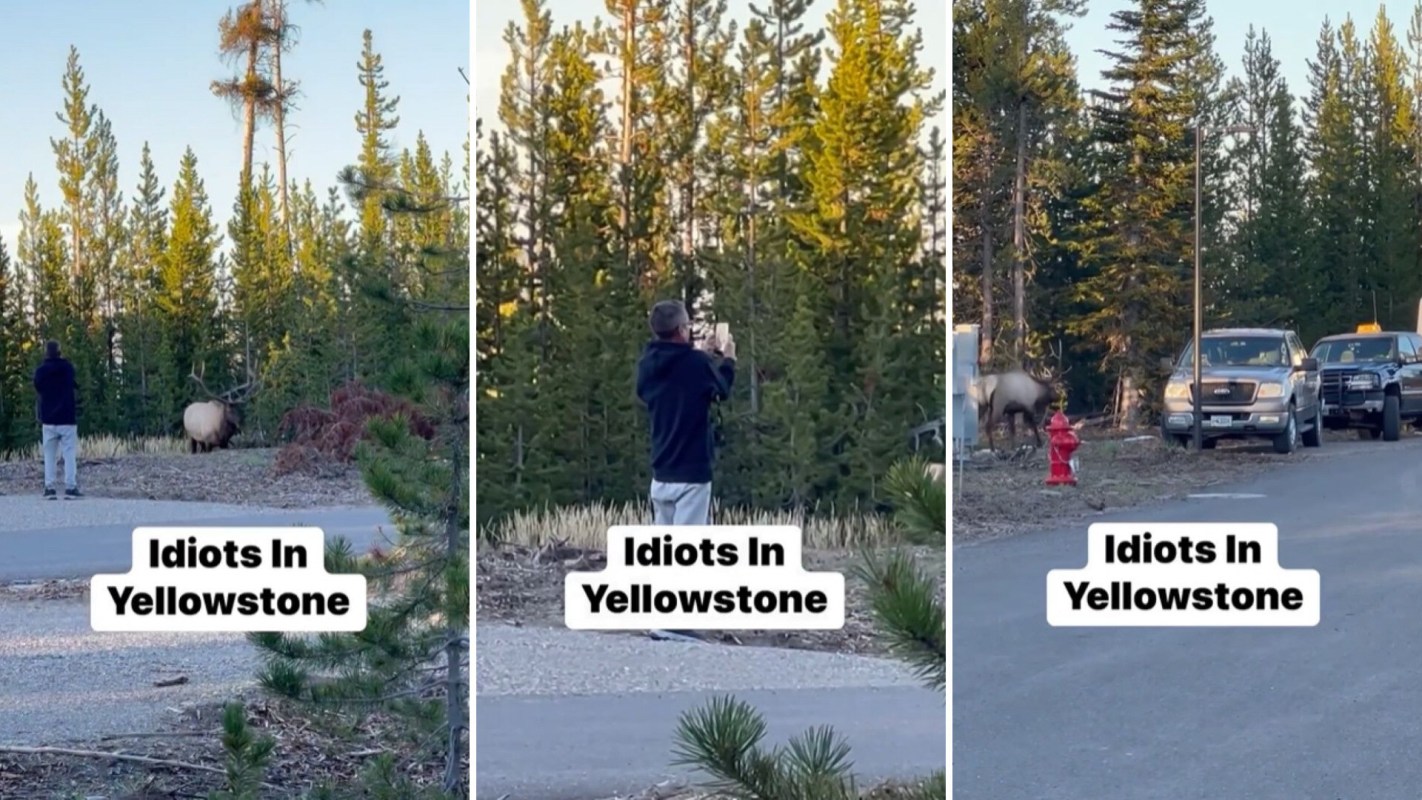People take advantage of the outdoors in many different ways: camping, hiking, biking — but the worst of us may choose to take advantage of nature by taunting wildlife. A viral video recently captured a man at Yellowstone National Park harassing a bull elk, which is not only against regulations, but also dangerous.
The clip, shared by Next Trekking Adventure (@next.trekking.adventure), shows a visitor using an elk call to get the animal's attention. Not only is this reckless behavior that could cause a serious injury, but it's also a flagrant disrespect of Yellowstone rules and should be reported immediately to a ranger.
Provoking wildlife for the sake of a photo not only poses immediate dangers but also has long-term consequences for the environment. Habituation to human interaction can alter animals' natural behaviors, affecting their ability to forage, reproduce, and interact within their ecosystems.
Unfortunately, instances like this are more common than you think. The Cool Down has a wide array of irresponsible tourons who tempt fate to get the perfect snap. But more importantly, behavior like this endangers wildlife, as most animals that injure humans — provoked or unprovoked — are euthanized. Ultimately, respecting and observing wildlife from a safe and non-intrusive distance is crucial for their preservation and our own safety.
According to the National Park Service, visitors should stay at least 25 yards away from elk since the animal is prone to charging people who get too close.
People in the comments were not happy.
One Instagram user wrote: "I am amazed by the lack of respect for the rules at Yellowstone. Someone is going to get seriously injured … and then want to blame someone other than themselves. People need to be fined and removed from the park if they can't follow guidelines."
"Never ceases to amaze me how stupid some people are around wild animals," another commented.
Thankfully no one was injured, and hopefully videos like this inspire people in the future to be more respectful and safer when they're around wildlife.
Join our free newsletter for cool news and cool tips that make it easy to help yourself while helping the planet.









